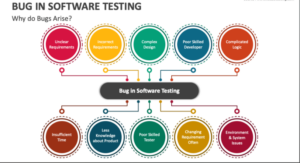Azure DevOps contains developer services for support teams to plan work accustom on code development and build and deploy applications. Azure DevOps supports culture and set of processes makes developers and also project managers and contributors combine together to complete software development. It gives organizations to form and improvise products quicker than they are with traditional software development approaches. We can work in the cloud using Azure DevOps services or on-premises using Azure DevOps servers.
Azure DevOps provides both features that we can execute through our web browser or IDE client.
- Azure Repos always provides Git repositories or may be Team Foundation Version Control for source control of your code.
- Azure Pipelines provides build and release services to support continuous integration and delivery of our application.
- Azure Boards has Agile tool packages to assist planning and tracking work, code defects and any issues using Kanban and scrum methods.
- Azure test plans allows many different tools to verify the applications, including manual/exploratory testing and continuous testing.
- Azure Artifacts allows the teams to share package such as Maven, NPN, NuGet and also public and private sources and integrate package sharing into pipelines.
We can also add collaboration tools like:
- Team Dashboards can be customised, widgets can be configured to share information progress and trends.
- Wikis are Built-in for sharing information.
- Configurable notifications.
Azure DevOps has extra extensions and integrates with other popular services like a campfire, Slack, Trello, UserVoice and etc developing your own custom extensions.
Azure DevOps services when we want the following outcomes
- Quick set –up
- Maintenance-free operations
- Easy collaborations across domains
- Elastic scale
- Rock-solid security
Azure DevOps is not focused on organizations that are end–to–end Microsoft or windows Azure DevOps provides a platform that is
- Flexible- we don’t have to go all on Azure Devops.It is possible to adopt each of the services independently and integrate them with our existing tool chain,most popular tools are supported.
- Platform agonistic- Designed to work with any platform.Azure devops is not just aimed at organization building and shipping .net code.
- Cloud agonistic- Continuous delivery will be supported to AWS and GCP as well as to Azure.
Benefits of Azure DevOps
- Reliability- As SaaS Azure Devops is very reliable.Scalable and globally available.It supports by an SLA of 99.9% and 24X7 backup.
- Access to features- Azure Devops who uses will get authority to access to advanced features every 3 weeks Microsoft is very transparent that has published of product roadmap and are committed to rapidly iterating on feature –set.
- End of the upgrade cycle- All organization performing on-premises CI/CD tooling.It’s upgrades are a big headache.By moving to SaaS model don’t have to worry about the patching and upgrading the toolchain.
Azure DevOps Services:
Azure DevOps provides integrated set services and tools to manage your software projects, from planning and development through testing and deployment. Services are delivered through a client/server model. The following services are:
- Dashboard
- Wiki
- Boards
- Repos
- Pipelines
- Test plans
- Artifacts
Many of the services are either free for small teams or available through a subscriptions model.
How agile are related to Azure DevOps?
Both DevOps and agile are software development practices which each will have some different highlights. DevOps are have a culture that highlights creating efficiency for all the stakeholders who are involved in the development deployment and maintenance of software. Agile will be used in the lean manufacturing process that will assist to provide a software development production framework. Agile is particular about the development team where the popularity of DevOps may be dragged to the stakeholders included in the maintenance of software.


























